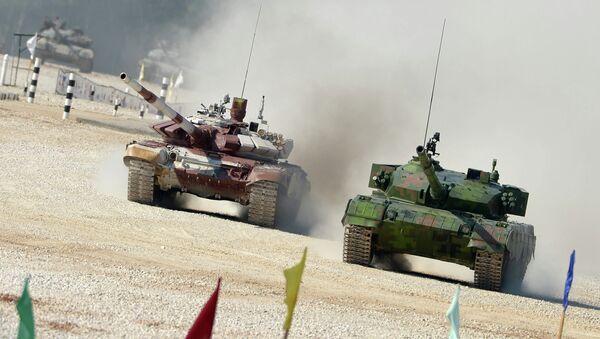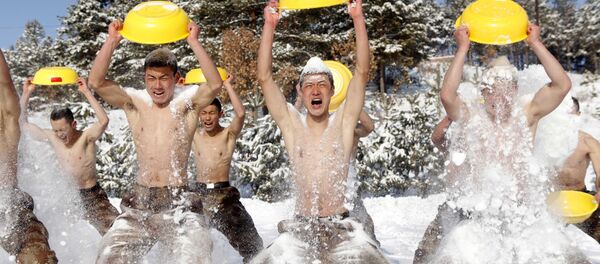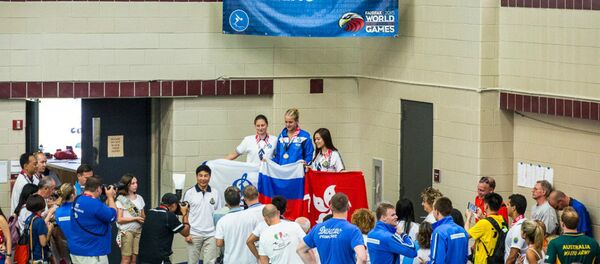Participation in the tank biathlon has burgeoned since its first incarnation in 2013, in which Russia hosted teams from Belarus, Armenia and Kazakhstan. This year's third international contest promises ever greater competition.
"The track has become more complicated, because tank operators and motorized infantry have increased their combat training since last year's biathlon," explained Evgeniy Poplavsky, who has been overseeing the preparation for the battle.
"This year we've added water operations and increased the requirements that need to be met in order to reach the course's targets."
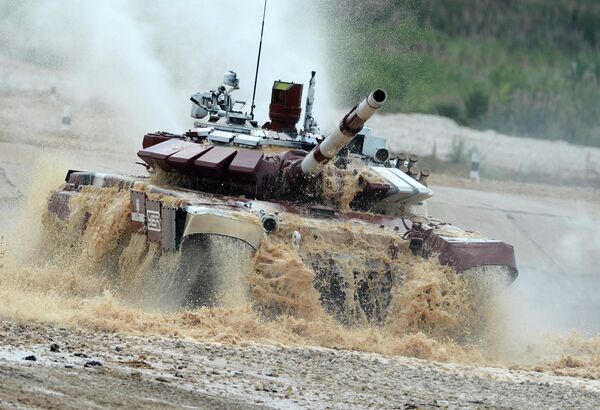
"We have changed our technology somewhat, and increased our level of preparation in comparison with last year," stated a spokesman for the Chinese team.
"But the main thing for us is not victory, but teamwork with other countries and particularly with our Russian colleagues."
The head of the Angolan team informed LifeNews of their intention to compete seriously in this year's contest:
"The Angolan team is ready for the challenges, and we will endeavor to compete as equals. Last year's participation was good training- this time we're going to battle for first place."
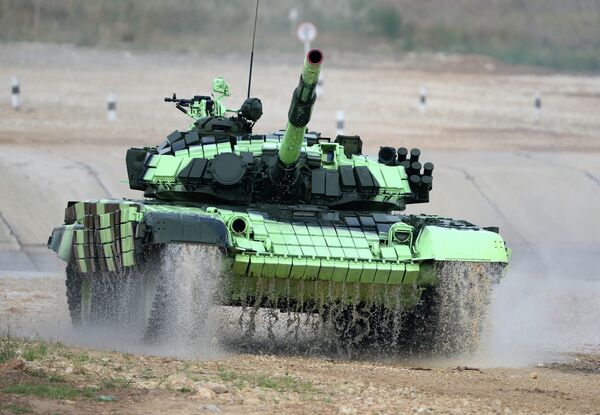
The tank biathlon is one of a series of events which comprise the International Army Games, a three week competition beginning on August 1 to find the best combatants from 14 countries' armed forces, taking place in ten locations across Russia.
The opening of the 2014 tank biathlon.
As well as the tank biathlon, other event highlights include the 'airborne platoon' contest for paratroopers, the 'aviadarts' event for low-altitude piloting, and the 'open water' event, which tests pontoon troops' ability to transport military hardware across water obstacles.
The all-important 'field kitchen' contest ensures that no aspect of combat is left unchecked; participants must show their versatile battle capabilities throughout the three stages of the competition, which include 100m and 1000m sprints, their ability to fire an assault rifle, and finally their cookery and baking skills, with each unit preparing the national traditional meal from their country for the judges to assess.

